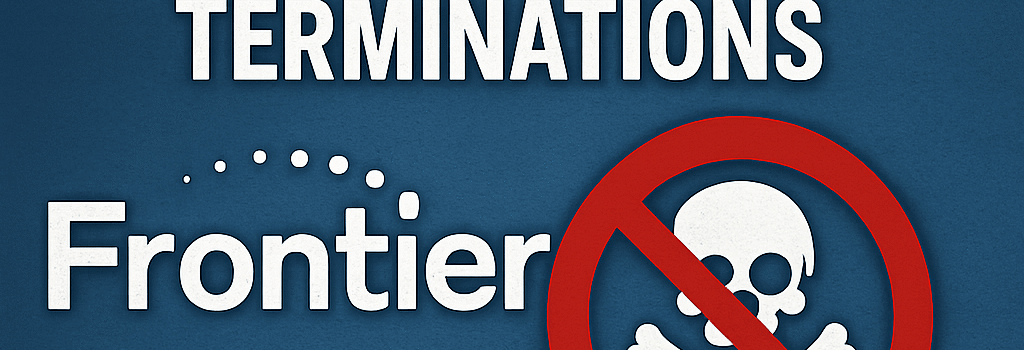Frontier Settles Lawsuits Over Broadband Piracy Terminations

Settlement Overview
In June 2025, Frontier Communications reached a confidential settlement with Universal Music Group, Sony Music Entertainment, and Warner Music Group, who had sued the ISP in 2021 for allegedly failing to disconnect repeat infringers on its broadband network. Filed in the U.S. District Court for the Southern District of New York, the notice of settlement stipulates dismissal with prejudice, with each party bearing its own costs. A parallel agreement in the District’s Bankruptcy Court resolves similar claims from the record labels, following Frontier’s bankruptcy exit in 2021. Earlier in April 2025, Frontier also settled lawsuits brought by major movie studios just days before trial.
- Case filings: SDNY District Court (2021) and Bankruptcy Court (2021)
- Parties: Universal, Sony, Warner vs. Frontier
- Outcome: Mutual dismissal, fees borne independently
While the detailed terms remain sealed, industry observers are watching for any operational changes in Frontier’s automated DMCA notice-and-takedown workflows, including subscriber termination thresholds and appeals procedures.
Technical Implications for ISP Infrastructure
Processing upwards of hundreds of thousands of alleged infringement notices annually demands robust backend systems. ISPs typically integrate:
- AAA Servers (Authentication, Authorization, Accounting) to tag suspect sessions
- DPI Engines (Deep Packet Inspection) for protocol-level analysis, often leveraging solutions from Cisco, Sandvine, or Palo Alto Networks
- Subscriber Policy Enforcement modules within Broadband Network Gateways (BNG), which throttle or disconnect based on policy flags
Deploying these systems at scale can introduce latency overheads of 5–15%, depending on traffic volumes and encryption bypass techniques. Moreover, false positives—where legitimate P2P traffic is misclassified—can lead to wrongful terminations, raising consumer complaints and regulatory scrutiny.
Legal Landscape and Supreme Court Implications
The crux of the dispute centers on the DMCA Safe Harbor provisions, which protect ISPs from contributory infringement if they follow standardized notice-and-takedown procedures. The record labels argue that merely processing notices without terminating repeat offenders fails the “expeditious removal” standard.
The U.S. Supreme Court is weighing whether to hear Sony Music Entertainment v. Cox Communications, a parallel case in which Cox prevailed in lower courts. The Department of Justice, under the Trump administration, sided with Cox, cautioning that imposing termination requirements after a single notice could:
“Encourage providers to terminate subscribers prematurely and stifle broadband competition,” DOJ Brief, Oct. 2020
A ruling against ISPs could compel nationwide deployment of subscriber-tracking databases and automated cut-off triggers, fundamentally altering network neutrality debates and consumer privacy norms.
Deep Packet Inspection and Monitoring Technologies
To satisfy potential new termination mandates, ISPs may invest in advanced DPI clusters with GPU-accelerated pattern matching. Next-generation solutions incorporate machine learning classifiers trained on bitTorrent fingerprint datasets, claiming up to 98% detection accuracy. However, encrypted traffic analysis—via TLS fingerprinting and statistical flow profiling—remains an arms race with VPN and proxy services.
Economic Impact on ISPs and Consumers
Analysts at Bernstein Research estimate that incremental CAPEX for large ISPs to upgrade monitoring and termination systems could exceed $200 million over two years. Pass-through costs to consumers could manifest as:
- Higher subscription fees to cover infrastructure amortization
- Privacy add-ons allowing opt-out of DPI at premium rates
- Increased customer service expenditures to handle termination disputes
Expert Perspectives and Forecast
Jane Liu, a network security consultant at NetSec Advisory, warns:
“Mandating mass terminations based on automated notices risks collateral damage—legitimate users caught in the crossfire. A tiered warning system with human review would balance rights and responsibilities.”
Looking ahead, the industry anticipates new FCC proposals on transparency requirements for ISP monitoring, as well as potential EU-style data minimization mandates in U.S. privacy legislation. The Supreme Court’s decision on the Cox petition could arrive by late 2025, setting a precedent for how ISPs police digital piracy for the next decade.